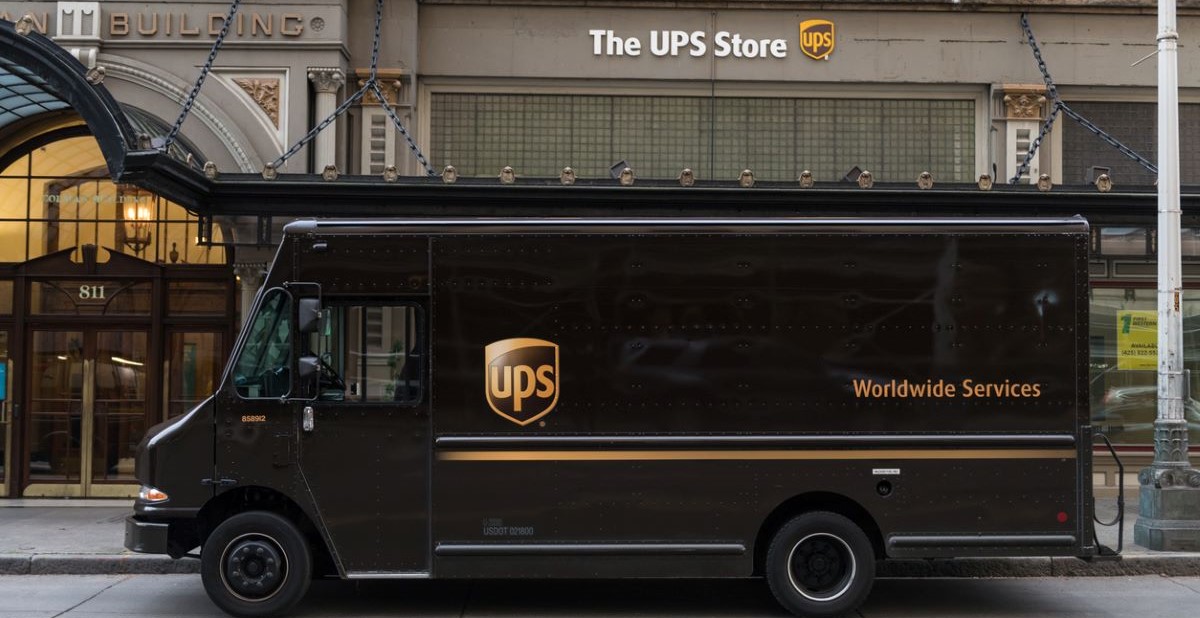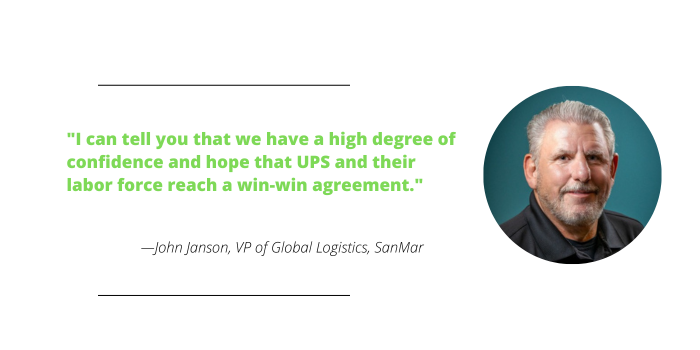UPS, Teamsters Negotiating Ahead Of Pivotal Summer Deadline

Negotiations began in earnest last week between parcel giant UPS and the International Brotherhoods of Teamsters. The two sides are bargaining in hope of reaching a new contract before the July 31 deadline in order to avoid a strike.
- A work stoppage would be catastrophically impactful to the U.S. economy, including the promotional products industry.
- UPS ships more than 24 million packages most days, and unionized Teamster labor is crucial in getting deliveries onto its trucks.
The Situation
The five-year contract between the UPS and the Teamsters, which represent the rights of approximately 330,000 UPS employees, is set to expire on July 31.
- The two sides exchanged initial proposals for a new contract on May 8 and talks continued in earnest the following day.
General president of the Teamsters, Sean O’Brien, made clear in an April speech that a strike is an option for UPS workers if the contract reached is not what the Teamsters consider fair. O’Brien had campaigned for his position in 2021 with promises to improve the deal when it came up for renewal this year.
“Teamsters will not be working beyond the expiration date of that contract unless there is a new contract that our members deserve, endorse, embrace and vote on,” O’Brien says. “We are prepared to work seven days a week to get it done.”

The negotiations between the two sides come down to two broad categories:
- A National Master Agreement that will cover issues such as wages, healthcare and pensions.
- Supplemental agreements that focus more specifically on local topics that affect each region.
O’Brien is a fourth-generation Teamster, who has spoken out against the handling of contract negotiations. His rhetoric and large-scale support within the union have outside experts believing that this particular negotiation has a somewhat higher chance of leading to a work stoppage than in years past.
A strike between the two sides last occurred in 1997.
“There’s an unpredictability about this year that hasn’t been there for the last few contracts,” Alan Amling, a distinguished fellow at the University of Tennessee, Knoxville’s Global Supply Chain Institute, told Supply Chain Dive.
However, UPS CEO Carol Tomé expressed confidence that the two sides would address all of the issues of a new contract and avoid a work stoppage, claiming “we just need to get it done and we will.”
- The company’s biggest competitor ships less than half the number of packages as UPS.
- While parcel competitors such as FedEx and DHL could expand to take on some of the burden, that would cause ripple effects as well.
Positive news came out of initial talks last week according to Teamsters general secretary-treasurer, Fred Zuckerman.
“What’s most critical about these early hours of national negotiations is that big gains are already being made and the Teamsters have made zero concessions to get them,” Zuckerman says. “The progress made since yesterday at the national table has been hugely consequential for the rest of the bargaining process.”

The Promo Perspective
Even a brief work stoppage by the U.S. would have enormous ramifications on the promo industry’s ability to ship products to customers.
The industry’s largest supplier, SanMar uses UPS for all of its shipping. SanMar ships hundreds of thousands of packages through the carrier each day. The supplier’s VP of global logistics, John Janson, has weekly check-ins with the company in order to receive updates on the contract situation. SanMar CEO Jeremy Lott is regularly in contact with Tomé as well.
From this perspective, Janson told PPAI Media that he is optimistic a strike can be avoided, but he believes the bargaining may go down to the wire.
“I can tell you that we have a high degree of confidence and hope that UPS and their labor force reach a win-win agreement,” Janson says.
Janson predicts that the threat of a strike will become an increasingly large national story. Ultimately, though, he feels that UPS has too much at stake not to ensure a contract is reached.
Still, as of this week, the possibility of a strike remains. SanMar has begun its due diligence in preparing for alternative options if necessary.
Promo companies will have to consider how this might affect them by exploring the possibility of other carriers and considering a transparent approach with customers if delays become a possibility.
“Should UPS have a work stoppage, which would be detrimental to the U.S., then we are working with our vast network of carriers,” Janson says. “Our goal is to continue to deliver packages to our customers with minor interruptions.”

